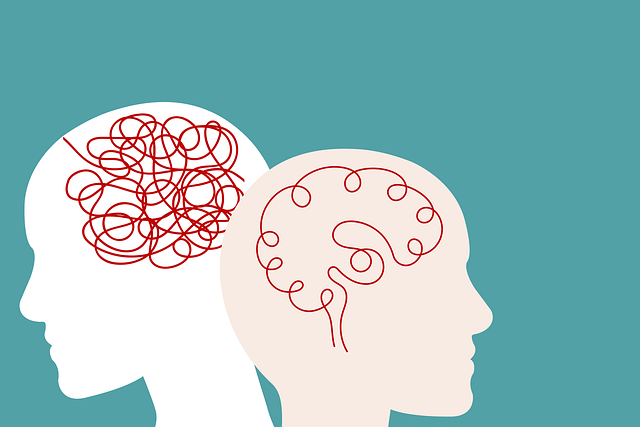Arvada Blended Families Therapy focuses on achieving emotional balance in unique family structures through understanding and regulating moods. By addressing past experiences, developing coping strategies, fostering open communication, and teaching self-care routines, the therapy strengthens bonds and promotes individual well-being. Using evidence-based practices like CBT and mindfulness, it empowers family members to manage stress, challenge negative thought patterns, and build resilience. Resources such as podcasts and workshops support daily mood management, while empathy-building strategies enhance understanding within diverse blended families.
Mood regulation is a vital skill, especially within complex family structures like blended families. This article explores strategies to achieve emotional balance, focusing on the unique challenges faced by these families. We delve into ‘Arvada Blended Families Therapy’, offering a holistic approach to well-being, and provide practical tools for daily mood management. Additionally, we discuss building resilience and coping skills, empowering individuals to navigate and stabilize their emotions effectively.
- Understanding Mood Regulation: Unraveling Emotional Balance in Blended Families
- Arvada Blended Families Therapy: A Holistic Approach to Emotional Well-being
- Practical Strategies for Daily Mood Management
- Building Resilience and Coping Skills for Stable Emotions
Understanding Mood Regulation: Unraveling Emotional Balance in Blended Families

In Arvada Blended Families Therapy, understanding mood regulation is a crucial step in achieving emotional balance. Blended families often face unique challenges due to the integration of different living arrangements and step-parents, which can lead to heightened emotional dynamics. Unraveling these complexities involves recognizing the impact of past experiences on present emotions and developing strategies for managing them effectively. Through tailored therapy sessions, families can learn conflict resolution techniques that foster open communication and understanding, thereby enhancing overall well-being.
One key aspect is empowering each family member with social skills training, enabling them to navigate interactions with sensitivity and respect. Additionally, establishing a self-care routine development for better mental health becomes integral in managing stress levels. By prioritizing individual emotional needs, blended families can create a harmonious environment where everyone feels valued and supported, ultimately strengthening their bonds.
Arvada Blended Families Therapy: A Holistic Approach to Emotional Well-being

Arvada Blended Families Therapy offers a holistic approach to emotional well-being, recognizing that each family is unique and requires tailored strategies for optimal mental health. This comprehensive therapy focuses on addressing the specific challenges faced by blended families, where step-parents, biological parents, and children come together to forge new dynamics. By employing evidence-based practices, therapists facilitate open communication, fostering empathy building strategies among all members.
Through a series of carefully designed sessions, the program teaches effective emotional well-being promotion techniques, empowering each individual to express themselves honestly. Communication strategies become the cornerstone of the therapy, encouraging active listening, respectful dialogue, and conflict resolution skills that strengthen family bonds. The ultimate goal is to create a nurturing environment where every member feels heard, understood, and valued, ultimately leading to a more harmonious and resilient blended family structure.
Practical Strategies for Daily Mood Management

Managing your mood on a daily basis is an essential aspect of maintaining mental wellness, especially within complex dynamics like Arvada blended families. While seeking professional help from therapists specializing in blended family therapy in Arvada is invaluable, there are practical strategies to implement in your daily routine. One effective method is mindfulness meditation, which encourages individuals to focus on the present moment and acknowledge their emotions without judgment. This simple practice can significantly reduce stress and enhance emotional regulation.
Additionally, engaging in regular physical activity releases endorphins, known for boosting mood and promoting a sense of calm. Incorporating activities like walking, yoga, or even dancing into your daily regimen can serve as powerful tools for self-care. The Mental Wellness Podcast Series Production offers valuable insights and guidance on stress management, while Stress Management Workshops Organization provides practical tools to help individuals navigate their emotions effectively. Remember, consistent practice is key to mastering these strategies, ultimately fostering a more balanced and positive mindset.
Building Resilience and Coping Skills for Stable Emotions

Building resilience and coping skills is essential for maintaining stable emotions, particularly within the context of Arvada Blended Families Therapy. This involves equipping individuals with the tools to navigate life’s challenges and stressor events effectively. By fostering emotional agility, one can prevent overwhelming feelings of sadness, anger, or anxiety from taking root. Through various therapeutic techniques, such as cognitive-behavioral therapy (CBT) and mindfulness practices, clients learn to identify and challenge negative thought patterns that contribute to emotional instability.
Empathy-building strategies play a pivotal role in this process, fostering understanding and connection with oneself and others. This is especially beneficial for blended families where stepparents, children from previous relationships, and new partners may have differing expectations and dynamic interactions. Additionally, healthcare providers can benefit from burnout prevention strategies that emphasize the importance of self-care and setting healthy boundaries to maintain their emotional resilience. Self-esteem improvement techniques also contribute to overall emotional stability by enhancing an individual’s sense of worth and confidence in managing life’s transitions and challenges.
In navigating the complexities of blended families, understanding and managing mood regulation is key. The holistic approach offered by Arvada Blended Families Therapy provides a valuable framework for achieving emotional balance. By combining practical strategies with building resilience, individuals can effectively manage their daily moods and foster stable emotions within these unique family structures. This comprehensive guide equips readers with the tools to thrive, ensuring healthier relationships and improved well-being for all involved.














